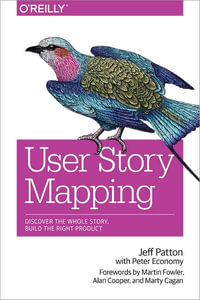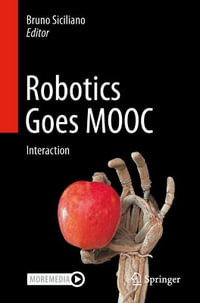| Keynote Speakers (Abstracts) | |
| Ambient Intelligence | p. 1 |
| Collaborative Agents for 2D Interfaces and 3D Robots | p. 2 |
| A Curse of Riches or a Blessing? Information Access and Awareness Under Scarce Cognitive Resources | p. 3 |
| Full Papers | |
| Supporting Metadata Creation with an Ontology Built from an Extensible Dictionary | p. 4 |
| Interaction with Web Services in the Adaptive Web | p. 14 |
| Social Adaptive Navigation Support for Open Corpus Electronic Textbooks | p. 24 |
| PROS: A Personalized Ranking Platform for Web Search | p. 34 |
| A P2P Distributed Adaptive Directory | p. 44 |
| Developing Active Learning Experiences for Adaptive Personalised eLearning | p. 55 |
| Adaptive User Modeling for Personalization of Web Contents | p. 65 |
| Invoking Web Applications from Portals: Customisation Implications | p. 75 |
| The Personal Reader: Personalizing and Enriching Learning Resources Using Semantic Web Technologies | p. 85 |
| An Experiment in Social Search | p. 95 |
| Recent Soft Computing Approaches to User Modeling in Adaptive Hypermedia | p. 104 |
| A Flexible Composition Engine for Adaptive Web Sites | p. 115 |
| Intelligent Support to the Retrieval of Information About Hydric Resources | p. 126 |
| CUMAPH: Cognitive User Modeling for Adaptive Presentation of Hyper-documents. An Experimental Study | p. 136 |
| Personalized Web Advertising Method | p. 146 |
| Flexible Navigation Support in the WINDS Learning Environment for Architecture and Design | p. 156 |
| Evaluation of WINDS Authoring Environment | p. 166 |
| On the Dynamic Generation of Compound Critiques in Conversational Recommender Systems | p. 176 |
| Evaluating Adaptive Problem Selection | p. 185 |
| Adaptive Presentation and Navigation for Geospatial Imagery Tasks | p. 195 |
| Myriad: An Architecture for Contextualized Information Retrieval and Delivery | p. 205 |
| Cross-Media and Elastic Time Adaptive Presentations: The Integration of a Talking Head Tool into a Hypermedia Formatter | p. 215 |
| Assessing Cognitive Load in Adaptive Hypermedia Systems: Physiological and Behavioral Methods | p. 225 |
| Context-Aware Recommendations in the Mobile Tourist Application COMPASS | p. 235 |
| Utilizing Artificial Learners to Help Overcome the Cold-Start Problem in a Pedagogically-Oriented Paper Recommendation System | p. 245 |
| Unison-CF: A Multiple-Component, Adaptive Collaborative Filtering System | p. 255 |
| Using SiteRank for Decentralized Computation of Web Document Ranking | p. 265 |
| Short Papers | |
| Web Information Retrieval Based on User Profile | p. 275 |
| Adaptive Support for Collaborative and Individual Learning (ASCIL): Integrating AHA! and CLAROLINE | p. 279 |
| Specification of Adaptive Behavior Using a General-Purpose Design Methodology for Dynamic Web Applications | p. 283 |
| Using the X3D Language for Adaptive Manipulation of 3D Web Content | p. 287 |
| Evaluation of APeLS - An Adaptive eLearning Service Based on the Multi-model, Metadata-Driven Approach | p. 291 |
| SearchGuide: Beyond the Results Page | p. 296 |
| Modeling Learners as Individuals and as Groups | p. 300 |
| Adaptive Help for Webbased Applications | p. 304 |
| Empirical Evaluation of an Adaptive Multiple Intelligence Based Tutoring System | p. 308 |
| Evaluating Information Filtering Techniques in an Adaptive Recommender System | p. 312 |
| Adaptive Educational Hypermedia Proposal Based on Learning Styles and Quality Evaluation | p. 316 |
| Adaptive Course Player for Individual Learning Styles | p. 320 |
| Rhetorical Patterns for Adaptive Video Documentaries | p. 324 |
| Location-Aware Adaptive Interfaces for Information Access with Handheld Computers | p. 328 |
| PSO: A Language for Web Information Extraction and Web Page Clipping | p. 332 |
| Swarm-Based Adaptation: Wayfinding Support for Lifelong Learners | p. 336 |
| Giving More Adaptation Flexibility to Authors of Adaptive Assessments | p. 340 |
| A Generic Adaptivity Model in Adaptive Hypermedia | p. 344 |
| Doctoral Consortium | |
| Extreme Adaptivity | p. 348 |
| A Learner Model in a Distributed Environment | p. 353 |
| A Semantic Meta-model for Adaptive Hypermedia Systems | p. 360 |
| Adaptive Navigation for Self-assessment Quizzes | p. 366 |
| Posters | |
| Towards Adaptive Learning Designs | p. 372 |
| Time-Based Extensions to Adaptation Techniques | p. 376 |
| On the Use of Collaborative Filtering Techniques for the Prediction of Web Search Result Rank | p. 380 |
| A Thematic Guided Tour Model for Contextualized Concept Presentations | p. 384 |
| A Fuzzy Set Based Tutoring System for Adaptive Learning | p. 389 |
| Offering Collaborative-Like Recommendations When Data Is Sparse: The Case of Attraction-Weighted Information Filtering | p. 393 |
| Using Concept Maps for Enhancing Adaptation Processes in Declarative Knowledge Learning | p. 397 |
| An Adaptive Tutoring System Based on Hierarchical Graphs | p. 401 |
| A Brief Introduction to the New Architecture of SIETTE | p. 405 |
| A Reinforcement Learning Approach to Achieve Unobtrusive and Interactive Recommendation Systems for Web-Based Communities | p. 409 |
| GEAHS: A Generic Educational Adaptive Hypermedia System Based on Situation Calculus | p. 413 |
| Problem Solving with Adaptive Feedback | p. 417 |
| Machine Learning Methods for One-Session Ahead Prediction of Accesses to Page Categories | p. 421 |
| Gender-Biased Adaptations in Educational Adaptive Hypermedia | p. 425 |
| An Overview of aLFanet: An Adaptive iLMS Based on Standards | p. 429 |
| A General Meta-model for Adaptive Hypermedia Systems | p. 433 |
| Adaptive Services for Customised Knowledge Delivery | p. 437 |
| Author Index | p. 441 |
| Table of Contents provided by Publisher. All Rights Reserved. |
























